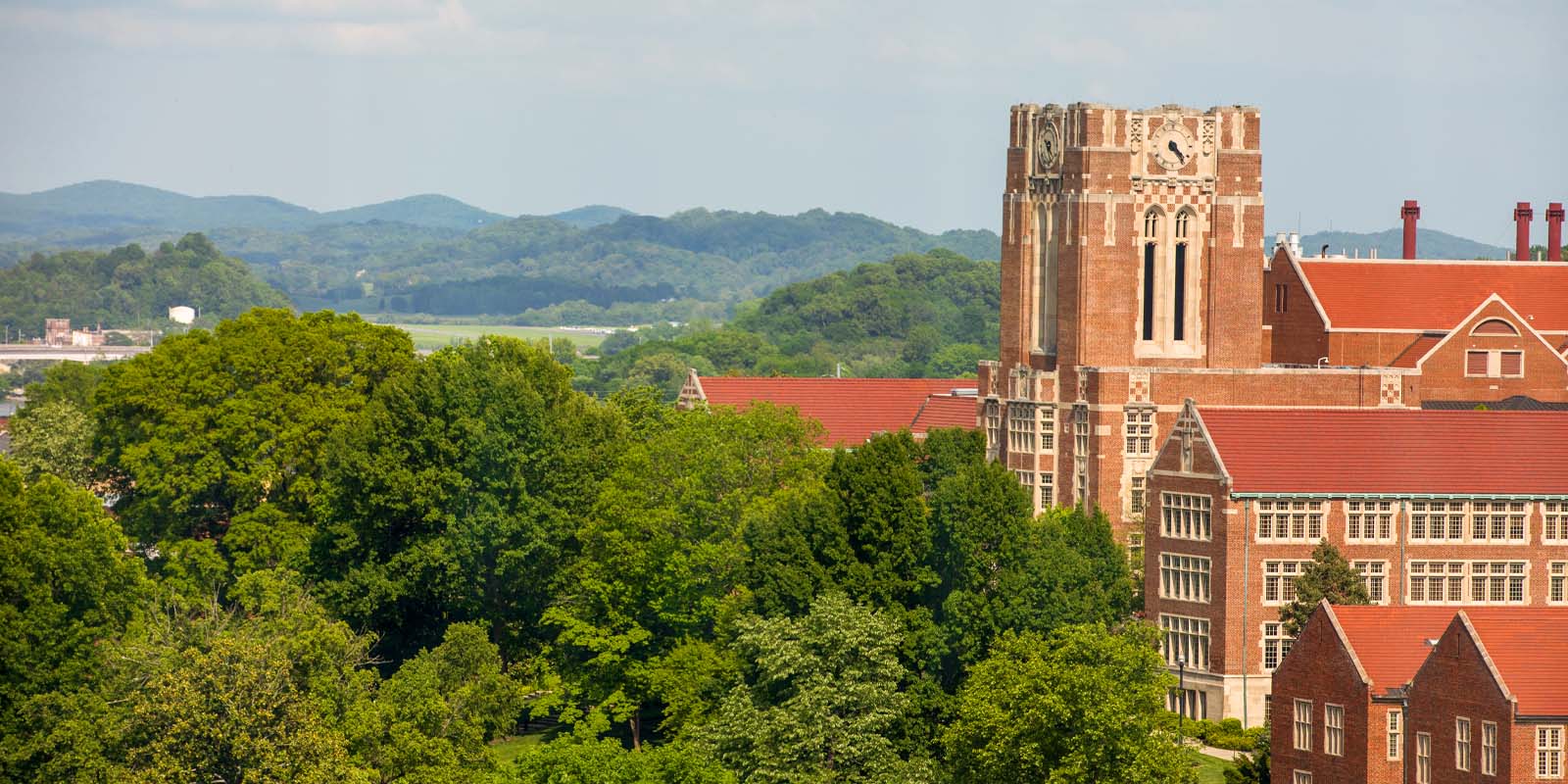UT Team Awarded Grant to Increase Tree Canopy, Reduce Stormwater Runoff
Thanks to two federal grants totaling $4.3 million, Knoxville is expected to have a much greener, healthier, and cost-effective future.
Associate Professor of Civil and Environmental Engineering Jon Hathaway is leading a team from the University of Tennessee to help expand Knoxville’s tree canopy to underserved communities.
UT was awarded $2.6 million to increase tree canopy coverage, reduce stormwater runoff, mitigate extreme heat, and bring ecosystem services to underserved communities in East Knoxville.
The federal government awarded another $1.7 million to Trees Knoxville, a nonprofit partner, to plant and maintain 7,500 trees along streets, in parks, at schools, in public housing communities, in historic African American cemeteries and elsewhere.
Through their work, Hathaway’s team, which includes Assistant Professor of Social Work Jennifer First and Professor of Urban Forestry Sharon Jean-Philippe, will be helping fulfill UT’s land-grant mission by focusing on several areas, including supporting underserved communities in East Knoxville.
Their plan is to install gravel tree stormwater systems and provide accompanying public education and workforce development. The systems would have significant implications for climate resilience by providing shading, evaporative cooling and extreme precipitation mitigation.
One of the first gravel tree stormwater systems was installed in East Knoxville in a collaborative effort between the US Forest Service, UT, and the City of Knoxville Urban Forestry Division. Hathaway worked with former USFS Technology Transfer Specialist Eric Kuehler on the project.
“Observation of the system showed it was well functioning and tree growth and health in the system were excellent,” Hathaway said. “Due to the low cost and benefits provided by these systems, GTSS may be an integral part of climate resilience in communities, in particular those that are economically disadvantaged.”
As part of the process, UT’s team will be providing internships in the forestry profession and building groups of certified professionals in green infrastructure maintenance.
“This will help increase public participation in urban forestry to build the next generation of diverse leadership in this field,” Hathaway said. “We want to educate people and give them skills and experience that will hopefully allow them to go out and work in this industry.”
City of Knoxville’s Goal to Increase Green Space
According to Knoxville Mayor Indya Kincannon, the grants, awarded as part of the Inflation Reduction Act, come at a strategically opportune time.
“The investments made possible by these federal grants will be transformative,” said Kincannon. “We’re going to reverse the slow decline of tree canopy, and in fact prioritizing the greening up of areas that we know are the most in need of additional plantings.”
The city’s Urban Forestry Division oversaw a first-ever comprehensive canopy assessment in 2021. That study documented more than 24,000 acres of tree cover in Knoxville — 38% of the total land area. The canopy decreased by 732 acres over a decade, however, with most of those decreases on private property.
The canopy assessment, along with immense public input, led the city and Trees Knoxville to develop the Knoxville urban forest master plan, a long-term roadmap showing which trees to plant and where to plant them. Trees Knoxville and the city share a goal of increasing tree cover to 40%.
While the city generally plants up to 500 trees a year, the grant funding to Trees Knoxville will pay for three times as many plantings.
“The master plan is community driven,” said Trees Knoxville Chair Dale Madden. “It will better human health, create more access to green space and improve our quality of life. This federal funding is a springboard for us to launch the implementation of the plan. What we do in these next five years will be critically important to the future of Knoxville for many years to come.”
The grant to Trees Knoxville will fund the purchase, plantings and care for 1,000 trees on public property each year for five years, plus a giveaway of 500 trees a year for residential plantings. Trees Knoxville will offer free educational events on tree care and provide professional training to expand the tree-care workforce.
UT’s grant, meanwhile, will complement the work of Trees Knoxville and the city.
“This project is important because it has so many different elements that are beneficial to humans and from an environmental standpoint,” Hathaway said. “I think we are going to learn a lot about these systems and hopefully get similar benefits for a smaller price while providing cooling, shade and the mental health benefits of trees.”
